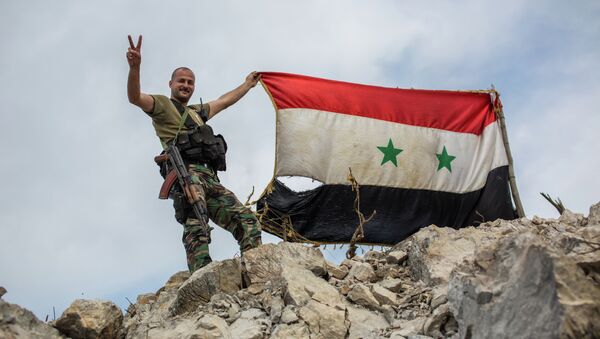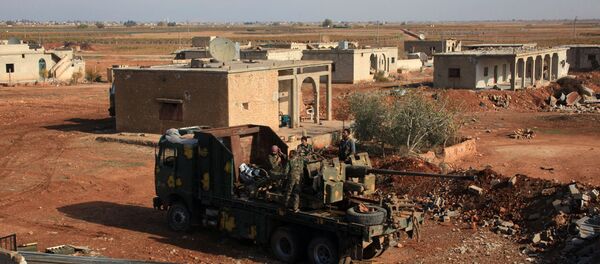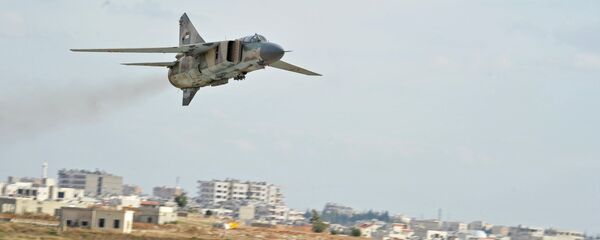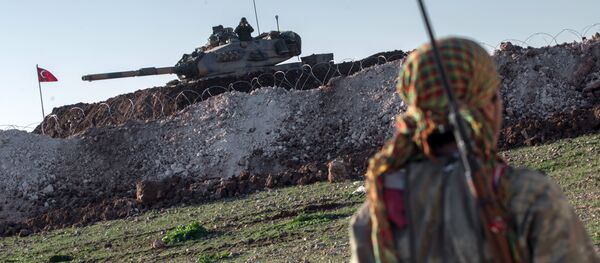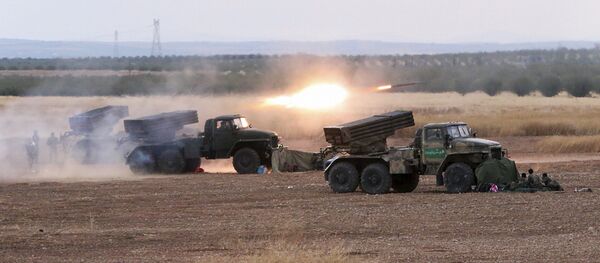Last year's political and diplomatic efforts by Syria's allies, which culminated in the extension of direct Russian military support in late September, resulted in a series of important tactical victories for Syrian government forces in the provinces of Aleppo, Latakia and the suburbs of Damascus. Meanwhile, at the close of the year, Russia made the historic move of offering air support to the Syrian Democratic Forces – a diverse coalition in northern Syria leading an offensive on the de facto Daesh (ISIS/ISIL) capital of Al-Raqqah.
For her part, Elena Suponina, advisor to the director of the Moscow-based Russian Institute for Strategic Studies, was pessimistic, warning that unfortunately, a sharp escalation of the conflict cannot be excluded.
"It is clear that the Syrian campaign will not be short, as was planned in the beginning. At the same time, there has been an escalation of risks associated with the unpredictability of the situation in the region. The main problems should be expected to come from the abrupt actions of the players involved, whose actions are now quite difficult to predict."
This, Suponina explained, "applies not only to the Gulf monarchies that support the forces in Iraq and Syria, but to Turkey as well. Recep Tayyip Erdogan has not yet parted with the idea of creating a buffer zone in northern Syria. At present, the Syrian front has seen progress, but how things will evolve is difficult to say. The situation can change very suddenly."
Leonid Isaev, Middle East expert at Moscow's Higher School of Economics, similarly doubts the prospects for a speedy end to the conflict. "From all appearances, Russia does not have any plans to stop the air operation, given the budget which was recently adopted to support it. Of course, a ground operation is unlikely to follow, but I don't think that our military presence in Syria will be limited to 'training' in the new year."
As for what to expect from the monarchies of the Gulf countries, the expert believes that so long as the reigning King of Saudi Arabia – Salman bin Abdulaziz Al Saud, remains in power, "the monarchy will not radically change its strategy," all the more-so because Salman had effectively steered Saudi policy toward Syria into its present course even before he became the king.
"Therefore, the Saudi political elite, chances are, will stick to its guns, despite the fact that the situation in the region has adversely affected Saudi Arabia itself –financially, militarily and in terms of intra-elite conflicts."
Semyon Bagdasarov, the Director of the Center for the Middle East and Central Asian Studies, warns that while 2016 could see the Syrian army and Syrian Democratic Forces (an alliance of Kurdish, Arab, Assyrian and other militias in northern Syria) push the jihadists out of the country, there is also a strong risk of the conflict spilling into neighboring Turkey.
"I believe that the Syrian Democratic Forces will end up successfully taking the Daesh capital in Al-Raqqah," the expert noted. "Moreover, I think that these forces will also succeed in their effort to close the Syrian-Turkish border – specifically the 98-kilometer stretch through which ammunition, weapons and mercenaries pour into Syria."
In this connection, Bagdasarov warns that it is possible "that Erdogan's two-day visit to Riyadh late last month was made not only to discuss who would sit at the negotiating table on Syria, but also to come to an agreement on joint action on the use of special forces of the recently created 'Islamic anti-terrorism coalition' in Iraq and Syria."
Furthermore, the analyst also believes that the war in Syria "will spread in the direction of Turkish Kurdistan. As you will recall, since December 16, Turkish government forces have begun a campaign of open warfare with the Kurds." If Russia, in Bagdasarov's words, were to provide the Syrian Kurdish forces with air assistance, weapons, ammunition, and training assistance, the Syrian YPG's allies in Turkey, the PKK, could also reap the benefits, to the detriment of the Turkish operation against its Kurdish population.
For his part, Viktor Murakhovsky, a retired army colonel and member of the Expert Council of the Military Industrial Commission under the Russian Government, is convinced that in order to see improved results on the battlefield, Russia will have to step up its assistance to Damascus, specifically via tactical training assistance for the Syrian forces.
"We need to create a training camp somewhere in Latakia, where we can pluck out battalion-sized tactical groups [of the Syrian army] for retraining, simultaneously equipping them with the right weapons. I think that if four such Battalion Tactical Groups (BTGs) were outfitted with the right equipment and trained up to our standards, we would see results."
For its part, the Russian Aerospace Defense Forces mission to Syria began on September 30, 2015. At the start of the mission, the Russian air contingent at Latakia's Hmeymim airbase was equipped with 32 aircraft (including Su-25SM attack fighters, Su-24M and Su-34 bombers, Su-30SM attack fighters, and Mi-24 attack and Mi-8 multipurpose helicopters). In November, the contingent was reinforced, in part with forces which remain based in Russia, including Su-24SMs, Su-34s, Tu-160 and Tu-95MS, and Tu-22M3s tactical and strategic strike bombers. After Turkey shot down a Russian Su-24M on the Syrian border in late November, the Defense Ministry sent an S-400 Triumf air defense complex to Hmeymim, which, together with the Moskva missile cruiser's Fort air defense system, protects the Russian air contingent's operations.

